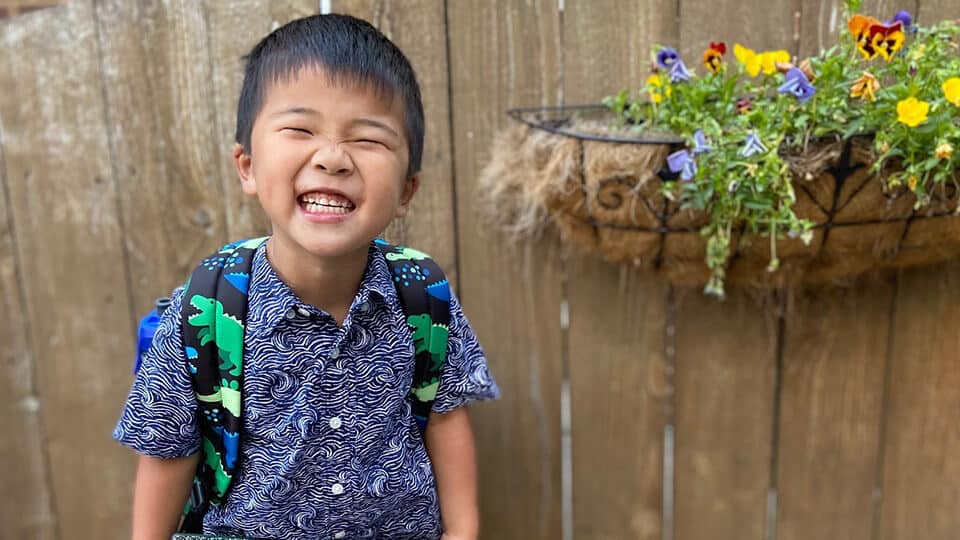
While summer is often a time full of fun and play, it can also be very jarring for kids who love consistency. Unfortunately, just as schedules settle into a summer routine, it’s often time to get ready to go back to school. Because of the anticipated challenges that accompany the end of summer, we want to help you prepare for the upcoming school year and ensure your child has the best start back to school possible!
IMPLEMENT THE NEW ROUTINE EARLY
If possible, start slowly integrating new parts of your child’s school-year routine into their summer life (Bard and Didriksen Pediatrics, Understood). Getting them back into a routine a few weeks early will help make the transition back to school easier since the changes can take place gradually. This may include implementing a regular bedtime or time to wake up in the morning, maybe it will include more reading and practice of their multiplication tables in the evening, or maybe it will simply look like changing out of pajamas every day for a week. Consider what you anticipate being the greatest challenges for your child, and intentionally work to implement that piece back into their life slowly. Remember, if your child has already started back to school, that is okay too! Start where you’re at and do what you can to support your child during this season of transition.
ANTICIPATE SIGNIFICANT CHANGES
Consider anything that will be extraordinarily new for your child this year. Will they be attending a new school, riding a new bus, starting or ending the day at a new time, using a locker for the first time, etc. Every kid will respond to change in a different way, so anticipate the most significant changes and begin discussing them with your child to help ease the transition and make the new school year easier on them and you (Understood).
TALK ABOUT FEELINGS
The experience of a new school year can bring a great wave of emotions. Your child may feel excited, joyful, anxious, fearful, or all the above and more. Your goal should be to open channels of communication between you and your child, so they know they can come to you with all of their thoughts, feelings, questions, and concerns. Even if your child does not directly come talk to you, keep an ear open or as Kids on the Yard said, “be a listening ear” to understand what the day-to-day life of your child is like. It’s good to ask questions, but sometimes, just listening to what they bring up while eating an afternoon snack or while they clean their room will tell you more about what they are experiencing in life than anything else. When talking, your goal should ultimately be to help lead and encourage them to a place of confidence. For some kids, they may need to hear a little pep talk and feel good about going back to school; maybe others are more socially anxious and need to get reconnected with school friends before the first day back. Whatever you do, help them know that you support them, and you believe in them no matter what. In time, their confidence will grow, and that confidence will play a vital role in your child’s success both academically and socially throughout the school year (Kids on the Yard).
GET TO KNOW YOUR CHILD’S TEACHER
Allowing your child to meet their teacher before the first day of school can create an enormous sense of relief for some children (Kids on the Yard). Whether at a Meet The Teacher event, school-wide orientation, or simply by stopping by the school before the first day of classes, prioritizing meeting the teacher is not only a benefit to your child but also to you. By meeting your child’s teacher early, you establish a relationship with them that communicates that you are invested in your child’s education.
If your child has specialized needs, consider setting up a private meeting to notify them about any potential triggers your child has. “Since the majority of children in school have not experienced grief, loss, and trauma, we cannot expect teachers and administration to understand the needs of a child who has” (Orphan Care Alliance). But, since “some studies suggest that up to 25% of students have experienced some type of early trauma, pointing your child’s teacher in the right direction will likely benefit more than just your child” (Adoption). For more information on this topic, read the Families Are Forever blog “Advocating for Your Child this School Year”.
BE PATIENT AND OFFER GRACE
Regardless of what the start back to school looks like for your family, be patient with your child and yourself knowing the new routine will settle into place eventually. Seasons of transition are challenging for everyone, but they can be especially challenging for children who experienced ongoing change early in life. Reassuring your child that “adjusting to new routines is a process” will comfort them and help them to know they are not alone (Understood). And ultimately, your patience and grace will continually remind your child that you love them, and you will support them no matter what!













